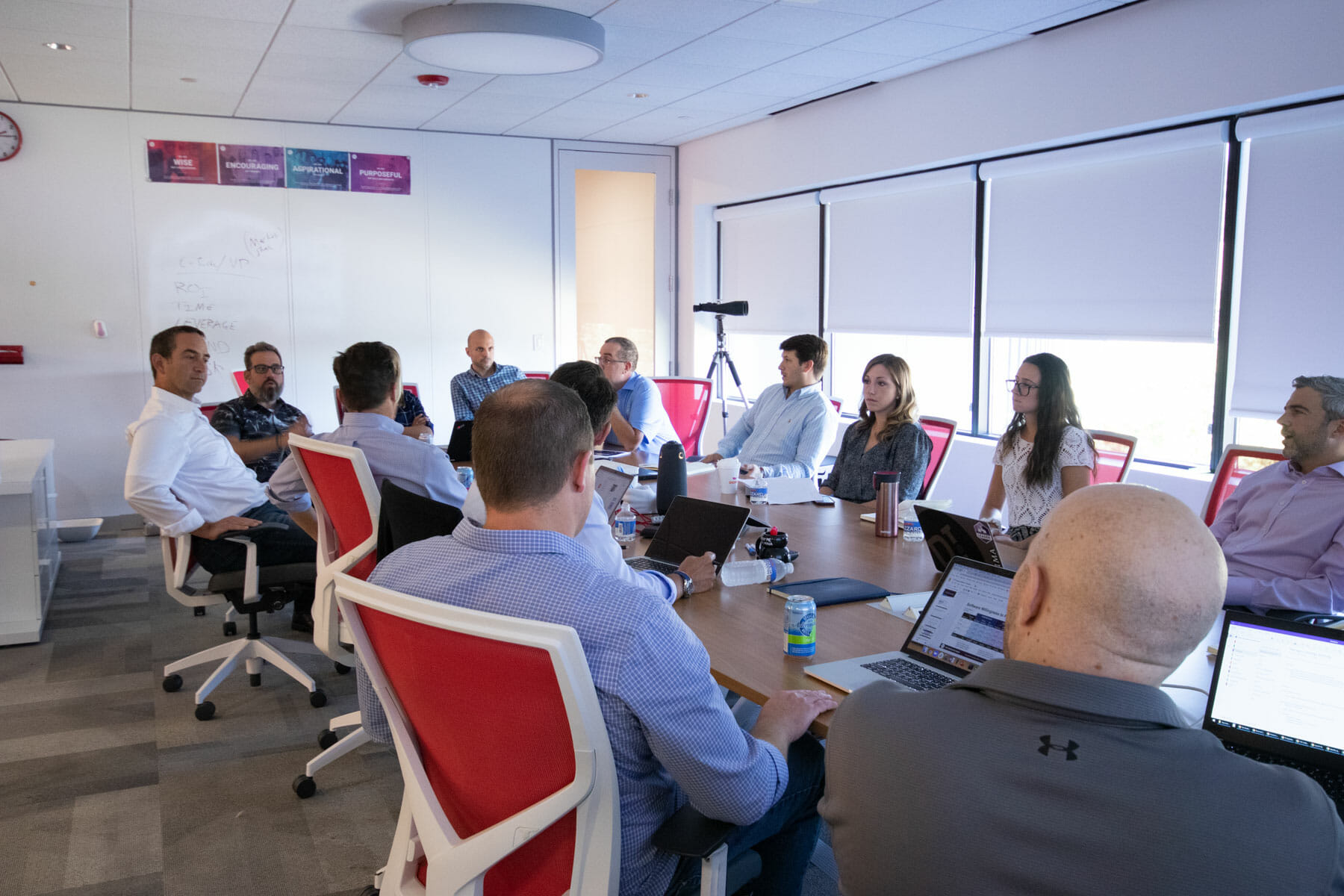Talent optimization is all about using data to align people to business strategy. However, executives and team leaders often forget that strategies—even those that seemingly don’t directly impact people—still affect employees.
We recently conducted several pilot studies using The PI Strategy Assessment™ to determine what individual behaviors drive strategy selection and how these behaviors influence leaders’ confidence in their strategy.
When taking the PI Strategy Assessment, leaders identify their organization’s current strategies from a list of thoughtfully developed initiatives. Leaders also rate their confidence in the organization’s ability to execute these strategies and answer a number of questions related to organizational readiness.
We used the PI Strategy Assessment and PI Behavioral Assessment™ results from 74 leaders across seven leadership teams in this study. Here are our chief findings. (Note: All findings reported are statistically significant.)

Finding #1: Some leaders are more concerned with employee morale than others.
While the finding likely comes as no surprise, we found that specific behavioral patterns in leaders were related to having less concern with employee morale.
Leaders with lower extraversion who were more formal and structured were more likely to endorse the statement “The company’s strategic goals will have a negative impact on employees and their morale.” In other words, leaders who were more people-oriented and casual were less likely to feel that their chosen strategies would negatively impact morale.
It might not be accurate to say serious, less sociable leaders don’t care about their people. However, they are more willing to risk investing in strategies that might not be well-received by their employees—and may ultimately result in a hit to the organization’s climate. These leaders are less afraid of doing what they feel must be done for the company—even if employee morale might be negatively impacted.
Finding #2: Certain leaders are more inclined to choose strategies that will change company culture.
Along the same lines as the first finding, there are significant correlations between leaders’ collaborativeness and patience (low A and high C, for the PI initiate) and the statement, “Our business strategies will require a big change in our company’s culture.” Leaders who are more collaborative (as opposed to driving) and more focused on stability are more likely to positively endorse this statement. These leaders can be described as “harmonious,” focusing heavily on achieving a calm and stable state where everyone is involved—rather than one person taking control.
It makes sense that such leaders would be more likely to think about how strategies could affect the organization’s culture—whether positively or negatively—as these leaders are concerned with minimizing unnecessary changes.
Finding #3: Leaders’ behavior influences the types of strategies they want to pursue.
This manifested in a number of ways. For example, leaders who are disciplined, formal, and less sociable are more likely to select strategies built around creating a stable, balanced culture. These leaders choose strategies based on implementing processes and procedures to get work done. They also select organizational goals that involve minimizing waste and maximizing efficiency..
In another example, leaders who are highly extraverted and flexible are more likely to select strategies related to sales growth. This comes as no surprise: It’s not uncommon to see relationships between extraversion and sales success—although by no means is extraversion a requirement for sales success. It also makes sense that leaders who are more inclined to “go with the flow” and react well in ambiguous situations may be more aggressive when it comes to pursuing additional sales.
What this means for your organization
Based on the findings of our study, it’s clear individual behavior not only affects what strategies a leader might choose to pursue but also the leader’s readiness to execute these strategies and the considerations they make.
Join 10,000 companies solving the most complex people problems with PI.
Hire the right people, inspire their best work, design dream teams, and sustain engagement for the long haul.


